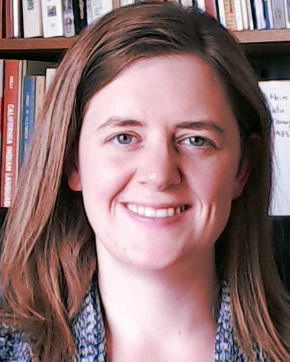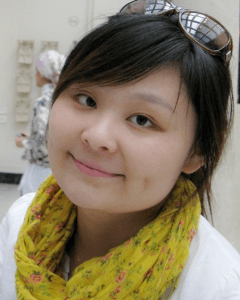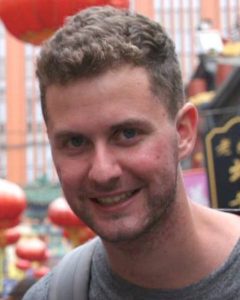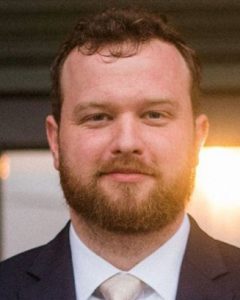SNL Student and Postdoc Career Development Panel
Wednesday, August 21, 2019, 12:30 – 2:00 pm, Balcony Level Foyer
The SNL Student and Postdoc Career Development Panel will provide our student and postdoc members with the opportunity to ask five early career researchers about their experiences in the academic and non-academic job markets. Lunch will be provided, and our current student and postdoctoral representative, Angela Grant, will moderate the session and get the ball rolling with some prepared questions.
Due to space restrictions, we ask that students and postdocs interested in attending please REGISTER in advance.
Currently there is a wait list for this event, but we encourage you to register and secure your position. Should additional space become available, we will contact wait listed students and postdocs in the order in which they registered.
Moderator |
|
 |
Angela Grant, Missouri Western State UniversityAngela Grant currently works as a Postdoctoral Researcher in the Department of Psychology at Missouri Western State University. She earned her dual-title Ph.D. in Psychology and Language Science from the Pennsylvania State University, and previously worked as a Horizon Postdoctoral Fellow at Concordia University in Montréal. Angela’s research focuses on bilingual language processing and its relationship with cognitive control, using behavioral, EEG, and MRI methodologies. Some of her current projects include: discourse processing in bilinguals, speech in noise processing in bilinguals, and computational modeling of individual differences in executive control using drift diffusion models. |
Panelists |
|
 |
Annika Hultén, Janssen-CilagAnnika Hultén is a licensed psychologist with an MA in Psychology from Åbo Akademi University in Turku. She received her PhD in 2011, on the topic of neural correlates of adult language learning for work done at the Low Temperature Laboratory at Helsinki University of Technology. After her PhD she moved to the Netherlands were she worked as Research Staff at the Max Planck Institute for Psycholinguistics until 2013. She then returned to Finland, to Aalto University where she worked as a Academy of Finland postdoctoral researcher until 2019. Dr. Hultén has more than 20 peer reviewed publications, including publications in PNAS and Nature Neuroscience. She is also a founding member of the Brain Twitter Conference which annually reaches around 400 000 Twitter users. In March 2019, she moved to the pharmaceutical industry and started as a Medical Advisor at Janssen-Cilag part of the Johnson & Johnson family of companies, where she continues work with science, now with the focus on mood disorders. |
 |
Laurel Lawyer, University of EssexLaurel Lawyer received her PhD in Linguistics from the University of California, Davis in 2015. Following this, she was a Postdoc in the UC Davis Center for Mind and Brain’s Cognitive Neurolinguistics Laboratory with David Corina, investigating longitudinal changes in visual and auditory perception in children with cochlear implants. In 2017 she was hired at the University of Essex as a Lecturer in Psycholinguistics, where she joined the Centre for Research in Language Development throughout the Lifespan, and started the Essex Speech and Sign Lab. She uses a variety of methods, including fMRI, EEG, eye tracking and other behavioural measures, as well as corpus studies. Her broad interests in the perception of language has led to projects on phonological and morphological alternations in English, on single sign perception in ASL, and orthographic processing by deaf adults. Most recently, she has been working on ambient language processing in children and adults, and has a new project tracking the development of regional accent awareness in British school children. |
 |
Qingqing Qu, Chinese Academy of SciencesQingqing Qu is an Associate Professor of Psychology at the Chinese Academy of Sciences. She received her Ph.D. in 2013 from the University of Bristol in the UK, where she worked with Markus Damian. Her research is concerned with the cognitive process and mechanisms underlying language processing, including language production, spoken word recognition, and cross-modal visual-spoken interaction in both the first and second languages. Since 2013, she has been an associate professor at the institute of Psychology . She has been the recipient of several awards, including the Chinese government award for outstanding student study abroad, Bristol University Commendation for Excellence in a Doctoral thesis, and Youth Innovation Promotion Association, CAS.
|
 |
Benjamin Schloss, Pennsylvania State UniversityBenjamin Schloss’s early interest in mathematics and linguistics led him to study cognitive science and eventually pursue a PhD in Cognitive Psychology and Language Sciences. He is currently in the last year of my dual title PhD program at the Pennsylvania State University. A series of fortunate funding events which propelled him through data collection, a mountain of debt from his undergraduate education, and a likely genetic predisposition to anxiety led him to precociously enter the job market at the end of the fourth year of his PhD program. After a short stint working as a computational scientist in the epidemiology department of a genetics company, he currently resides in Pittsburgh where he is simultaneously working as a full time Machine Learning Engineer for a venture capital backed healthcare tech startup called Abridge AI and writing and publishing his dissertation research. In industry (except for the genetics research) and in academia, his work has always focused on language. He makes heavy use of behavioral, eye-tracking, MRI, and advanced cognitive models (machine learning, deep learning, artificial intelligence, etc.) to understand how meaning is represented computationally as well as in the brain. He is also interested in how semantic processing in bilingualism may be different and how this interacts with memory and cognitive control (the topic of his dissertation). As a machine learning engineer, he works primarily on Natural Language Processing and Natural Language Understanding of dialogues between patients and caregivers in medical settings. |
 |
David Thornton, Gallaudet UniversityDavid Thornton is an Assistant Professor in the Department of Hearing, Speech, and Language Sciences at Gallaudet University in Washington D.C., USA. He started this position in 2018, while finishing up his Ph.D. at the University of Tennessee Health Science Center in Knoxville, Tennessee, USA. His research examines sensorimotor processing, with a particular focus on how listener sex influences these processes. This research is intended to investigate the higher presentation of certain disorders in males, which are often characterized by sensorimotor deficits. Beyond research, David also serves on the Communication Sciences and Disorders Advisory Board for Longwood University. In his spare time, he enjoys a good hockey game and trying to travel the world. |
